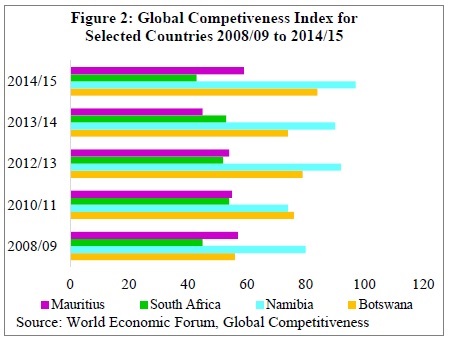News
Botswana: Country strategy paper 2015-2019

The Country Strategy Paper (CSP) provides a framework for the Bank Group support to Botswana for the period 2014-2019.
The CSP was developed within the context of the Government’s medium term-development framework, the 10th National Development Plan (NDP10) for the period 2009-2016. It has taken into account the Bank’s strategic priorities as outlined in the Bank’s Ten Year Strategy (TYS) for the period 2013-2022. The CSP will support Botswana achieve high, inclusive, and sustainable growth, which is the shared goal of the TYS and the NDP10.
Botswana is a resource-rich middle-income country which is praised for its prudent economic management. The country has made huge strides in socioeconomic development over the past four decades transforming itself from an underdeveloped country into a middle-income country. A striking feature of the Botswana economy is the rather limited economic transformation. The structure of production has changed very little since 1990. The country is highly dependent on the diamond mining industry and a large Government sector. However, the mining sector offers limited employment opportunities. In addition, labour-intensive manufacturing, which normally absorbs unskilled labour exiting traditional agriculture, has not developed. As a result, the economy has high levels of unemployment and inequality.
Botswana is at a critical juncture in its development. The global financial crisis of 2009 exposed the country’s vulnerability to external shocks due to its reliance on one commodity. Real Gross Domestic Product contracted by 7.8 percent from an annual average growth of 10 percent experienced over the previous four decades. In addition, Botswana's economy will face a difficult challenge in the medium term with the depletion of its diamond resources. This has led to a rethinking of the country’s development strategy. Botswana needs to accelerate economic transformation from the primary sector to advanced manufacturing and services in order to reduce its vulnerability to shocks in the diamond trade. The country needs to revive the growth of private sector investments and increase the productivity of economic investments. To achieve this, the government needs to invest in high impact infrastructure to improve competitiveness, provide a sound regulatory environment that is friendly to business, and further enhance skills development. As a result, the CSP will focus on two complementary pillars: (i) Infrastructure Development to Increase Productivity; and, (ii) Private Sector Development.
The CSP will support the country’s efforts to enhance private sector orientation so as to achieve higher sustained and equitable growth. Infrastructure projects supporting productivity can provide opportunities for Botswana’s private sector development. This will be complemented by promoting private sector participation in public service provision through public-private partnerships (PPPs), and enabling policy and regulatory reforms. The CSP will also emphasize knowledge solutions to inform policy formulation. While the proposed areas of engagement cannot support all of the Government’s development objectives, the interventions will have a catalytic impact and a clear demonstration of the Bank’s value-added engagement.
As an upper middle-income country, Botswana’s borrowing preferences change depending on the available fiscal space. As a result, the Bank will be flexible and responsive to the country’s changing needs for lending and advisory services. The Bank will develop a rolling 3 year pipeline of potential operations with confirmation done on an annual basis. This will be followed by the development of annual operations business plans aligned to the Government’s financing priorities. The Bank will creatively use its range of financial products, in addition to PPPs, to implement the CSP. It will continue to coordinate closely with development partners to improve development effectiveness and enhance operational collaboration.
Featured infographic
Botswana continues to rank low with regard to important determinants of private investment. Non-price competitiveness indicators suggest that Botswana has been moving steadily downwards in global rankings. Between 2008 and 2013, the country slipped 18 positions (from 56 to 74) in the Global Competitiveness Index and 21 positions (from 38th to 59th) in the World Bank’s Doing Business ranking. The decline is explained largely by the absence of improvements rather than worsening policies.





